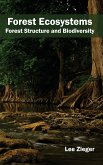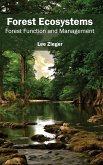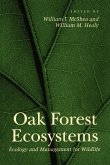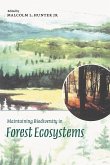The common idea for many people is that forests are just a collection of trees. However, they are much more than that. They are a complex, functional system of interacting and often interdependent biological, physical, and chemical components, the biological part of which has evolved to perpetuate itself. This complexity produces combinations of climate, soils, trees and plant species unique to each site, resulting in hundreds of different forest types around the world. Logically, trees are an important component for the research in forest ecosystems, but the wide variety of other life forms and abiotic components in most forests means that other elements, such as wildlife or soil nutrients, should also be the focal point in ecological studies and management plans to be carried out in forest ecosystems. In this book, the readers can find the latest research related to forest ecosystems but with a different twist. The research described here is not just on trees and is focused on the other components, structures and functions that are usually overshadowed by the focus on trees, but are equally important to maintain the diversity, function and services provided by forests. The first section of this book explores the structure and biodiversity of forest ecosystems, whereas the second section reviews the research done on ecosystem structure and functioning. The third and last section explores the issues related to forest management as an ecosystem-level activity, all of them from the perspective of the "other" parts of a forest.
Hinweis: Dieser Artikel kann nur an eine deutsche Lieferadresse ausgeliefert werden.
Hinweis: Dieser Artikel kann nur an eine deutsche Lieferadresse ausgeliefert werden.








